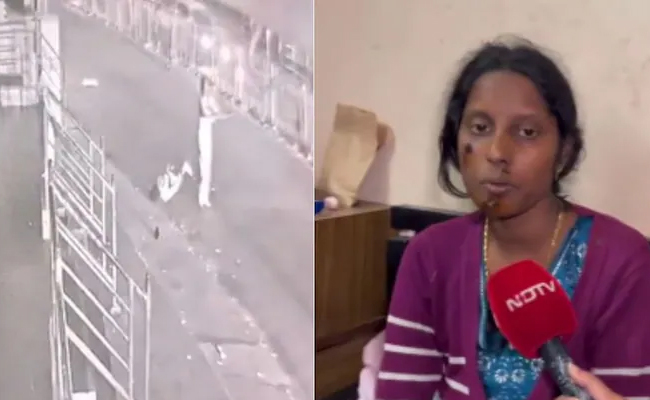Ahmedabad (PTI): The devastating Air India 171 plane crash, which claimed 241 lives on board and 29 on the ground, has created an unforeseen challenge for insurance companies to settle some claims where even the designated nominees have also died in the accident.
This has added another layer of administrative burden for grieving families, while the insurance industry is navigating uncharted territory striving to balance due diligence with compassionate expediency.
The Insurance Regulatory and Development Authority of India (IRDAI) has issued directives to fast-track claims.
In its June 14 circular, IRDAI asked all insurance companies to submit weekly updates on claims from June 16 onwards and further directed them to appoint nodal officers, waive formalities such as FIRs and postmortem reports, and expedite disbursals under life and personal accident policies.
There have been some cases where the entire family has perished or both spouses died in the crash, which are making the claims process particularly complex.
Major insurance providers, including Life Insurance Corporation of India (LIC), New India Assurance, HDFC Life, Iffco Tokio General Insurance, Bajaj Allianz General Insurance Company (GIC), and Tata AIG Insurance, quickly set up help desks at the Ahmedabad Civil Hospital to expedite the process.
They are actively matching data from authorities with their records and proactively reaching out to affected families.
However, while other cases were streamlined, complexities arose in instances where both the policyholder and their nominee died in the crash.
Aamir Khan Pathan, Administrative Officer (Claims Department) at LIC, the country's largest insurer, highlighted this challenging scenario saying "in a few cases, the husband and wife both perished in the crash and had nominated each other as their policy".
Ashish Shukla, another Administrative Officer with LIC, said that out of 10 claims received so far, one involves a situation where the insured nominated their spouse, and both died in the accident.
Similarly, Manpreet Singh Sabharwal, Manager (Claims) at Iffco Tokio General Insurance Company, cited a case where a company director and his wife died, with the wife being the nominee.
Nischal Buch, Principal Officer, Zonal Operations, Tata AIG, also reported one such case among the seven claims his company has received.
Typically, when both the insured and nominee die, insurance companies require a succession certificate to identify the rightful heirs. However, given the extraordinary circumstances of the air crash, companies are making exceptions.
"If both the insured as well as the nominee have died, we look for Class I heirs, which is typically the blood relatives like children," Shukla from the LIC explained.
"If there are multiple children, then we take a declaration from the heirs on how the claim is to be settled and an indemnity bond has to be submitted to the company," he said.
Buch added that their legal team is exploring the possibility of seeking joint declarations from all heirs to streamline the process in these complex cases.
The impact of the crash extends beyond life insurance.
Prakash Khanchandani, Administrative Officer with The New India Assurance, stated that his company has received seven claims: five related to personal accident policies and two for marine cargo that was onboard the flight. One marine cargo claim, worth Rs 6,50,000, has already been settled.
For personal accident policies, nominees are still in the process of submitting details as families deal with the aftermath of losing loved ones.
Bajaj Allianz reported four claims, including a marine cargo claim of Rs 55 lakh and three travel insurance policies, each for Rs 10 lakh, all involving passengers who perished in the accident.
"We have currently settled three claims under our Travel Personal Accident insurance. In addition, one claim has been registered under our Marine Cargo insurance," the company told PTI in response to a query.
Let the Truth be known. If you read VB and like VB, please be a VB Supporter and Help us deliver the Truth to one and all.
Mumbai (PTI): Neeraj Ghaywan's much acclaimed "Homebound" is among the 15 films shortlisted in the best international feature category at the Oscars, moving a step close to the final five nominations and maybe a win.
The movie, inspired by a true story that became the basis of a news article during the pandemic, has been creating a global buzz since its debut in the Un Certain Regard category at the Cannes Film Festival this May.
Hollywood legend Martin Scorsese is a fan and has come onboard as an executive producer ahead of the award season.
Produced by Karan Johar and Adar Poonawalla, and starring Ishaan Khatter, Vishal Jethwa and Janhvi Kapoor, "Homebound" is Ghaywan's second movie after "Masaan".
"Homebound" will compete for an Oscar nomination alongside Argentina's “Belén”, Brazil's “The Secret Agent”, French drama "It Was Just an Accident”, Germany's "Sound of Falling” and Iraq's "The President's Cake".
ALSO READ: Actress Shilpa Shetty's restaurant booked for breaching operating hours
The other movies in the shortlist include Japan's “Kokuho”, Jordan's “All That’s Left of You”, Norway's “Sentimental Value”, Palestine's “Palestine 36”, South Korean hit “No Other Choice”, Spain's “Sirat”, "Late Shift" from Switzerland, “Left-Handed Girl”from Taiwan and Tunisian drama “The Voice of Hind Rajab”, the Academy of Motion Picture Arts and Sciences announced in a release on Tuesday.
The award for best foreign film, now re-categorised as best international feature, has so far eluded India.
Only three Indian films have received nominations in the category -- Mehmood Khan’s “Mother India”, Mira Nair’s “Salaam Bombay” and Ashutosh Gowarikar’s “Lagaan”. Deepa Mehta’s “Water”, starring John Abraham and Lisa Ray, also received a nomination but it was submitted from Canada.
Gujarati film "Chhello Show" in 2023 was the last film to get shortlisted.
Costume designer Bhanu Athaiya was the first Indian to get an Oscar, bagging the coveted prize in 1983 for the film "Gandhi". Other than her, A R Rahman, Resul Pukootty and M M Keeravani have also won individual Oscars.
Team "Homebound" celebrated the shortlist news with posts on social media.
"We made the shortlist... Way to go team Homebound'!" Johar shared in Instagram Stories.
In a post, the producer said it was difficult for him to articulate how "proud and elated" he was with the news.
"All of us @dharmamovies are privileged to have this proud and important film in our filmography... thank you @neeraj.ghaywan for making so many dreams of ours come true... from Cannes to being on the Oscar shortlist this has been such an overwhelming journey! Love to the entire cast and crew and teams of this special special film! Upwards and onwards...."
Ghaywan also shared the news on X.
"#Homebound has been shortlisted for Best International Feature Film at the 98th Academy Awards! We are deeply grateful for the extraordinary love and support we've received from around the world," he wrote on X with a special poster of the film.
Jethwa, who plays one of the two friends in the story opposite Ishaan Khatter, said the moment feels "surreal and incredibly humbling".
"To see 'Homebound' being shortlisted and progressing towards the Oscars is something I could have only dreamed of. I am deeply grateful for the love and support the film has received from audiences around the world," he said as he acknowledged Johar, Ghaywan and co-star Khatter and the rest of the team.
Khatter also shared the news on his Instagram stories and wrote, "Oscar ab dur nahi".
ALSO READ: MGNREGA rename: Gandhi made ‘Raghupati Raghav Raja Ram’ national anthem, Kangana sparks row
"Homebound" is inspired by journalist Basharat Peer's The New York Times article “Taking Amrit Home”, also titled "A Friendship, a Pandemic and a Death Beside the Highway".
The film portrays the childhood friendship between a Muslim and Dalit who chase a police job that promises them the dignity they have long been denied due to their surnames.
The Academy on Tuesday also announced shortlists in 11 other categories, including the newly added casting Oscars, animated shorts, cinematography, documentary feature, documentary short, original score and song, sound and visual effects categories.
Nominations for the 98th Academy Awards will be announced on Thursday, January 22, 2026.
Twenty-four categories will be awarded at the 98th Oscars. Each category has five nominees, except for best picture, which has 10.
The 98th Oscars will be held on Sunday, March 15, 2026, at the Dolby Theatre in Los Angeles.





